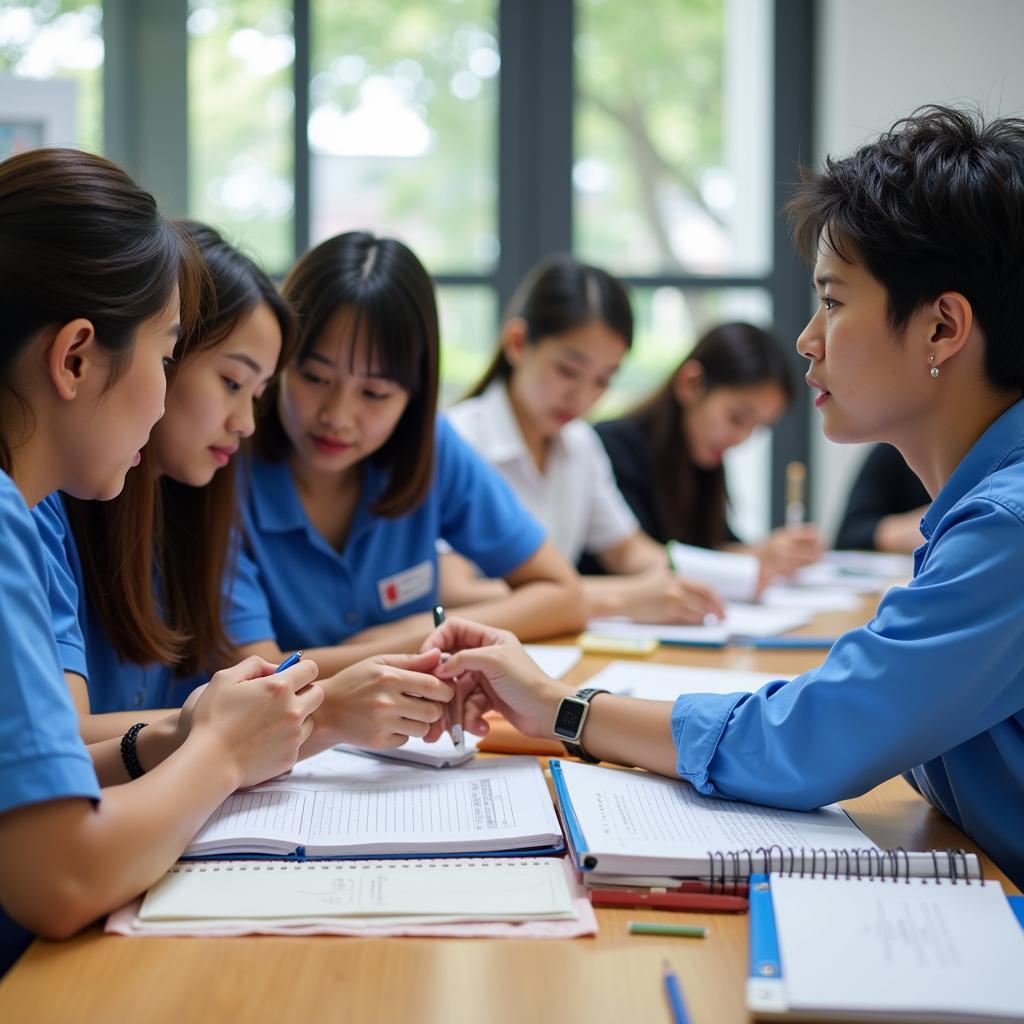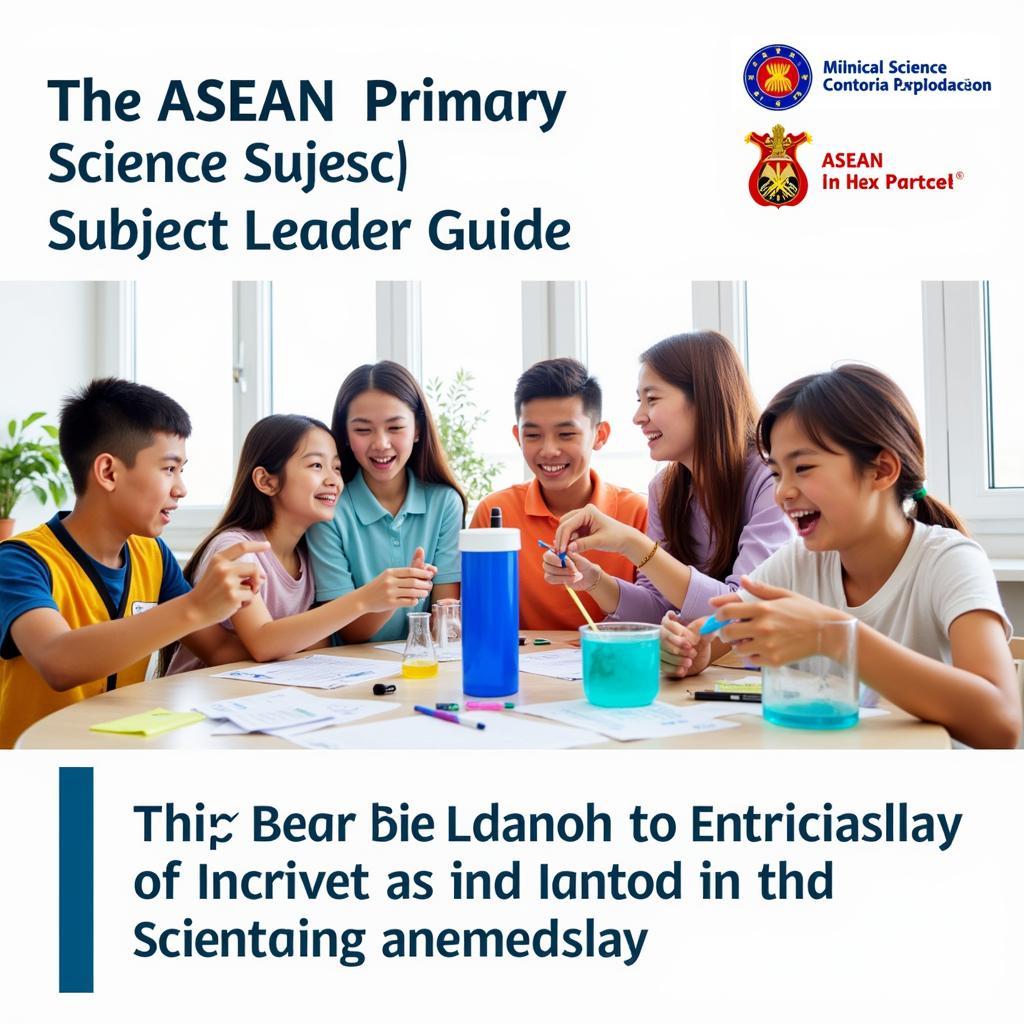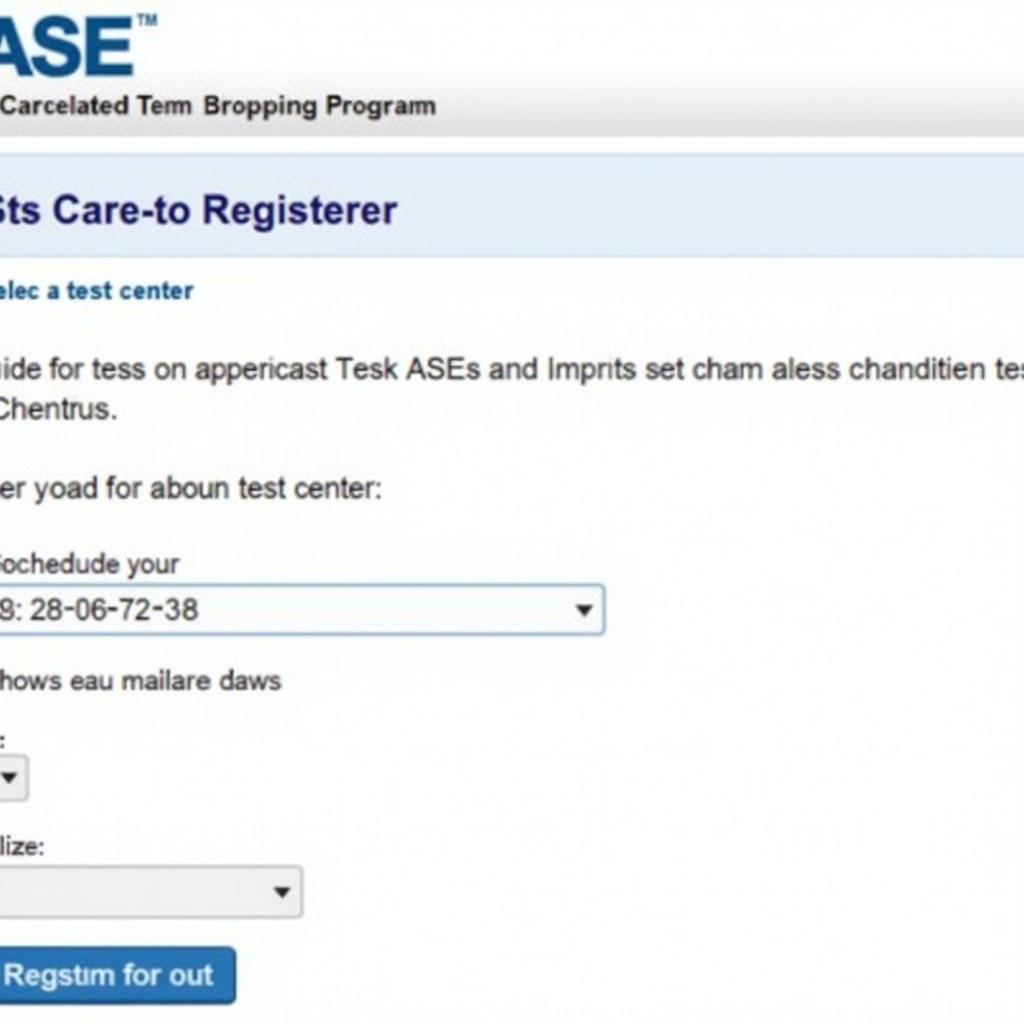The ASEAN Primary Science Subject Leader Guide is a crucial tool for educators passionate about fostering scientific literacy in young minds across Southeast Asia. This guide provides a framework for developing engaging and effective science curricula, empowering teachers to inspire the next generation of scientists and innovators.
ASEAN’s diverse cultural landscape offers a unique opportunity to enrich primary science education. By incorporating local contexts and examples, educators can make science more relevant and relatable for students. The Subject Leader Guide emphasizes inquiry-based learning, encouraging students to explore, question, and discover the world around them. This hands-on approach cultivates critical thinking and problem-solving skills, essential for success in the 21st century. Furthermore, the guide promotes collaboration and knowledge sharing among educators within the ASEAN community, creating a network of support and innovation.
Building a Strong Foundation: Key Elements of the ASEAN Primary Science Subject Leader Guide
The ASEAN Primary Science Subject Leader Guide offers a comprehensive approach to science education, encompassing curriculum development, pedagogical strategies, and assessment techniques. It addresses key aspects such as scientific inquiry, conceptual understanding, and the development of scientific literacy. The guide also emphasizes the integration of technology in science education, equipping students with the digital tools they need to thrive in a rapidly evolving world. A key focus is the alignment of science education with the unique cultural contexts of each ASEAN nation, promoting inclusivity and relevance. This helps in framing learning experiences within the local environment, making science more tangible and engaging for young learners.
 Students Engaging in Hands-on Science Activities
Students Engaging in Hands-on Science Activities
Implementing the Guide: Practical Strategies for Subject Leaders
Effective implementation of the ASEAN Primary Science Subject Leader Guide requires strategic planning and leadership. Subject leaders play a crucial role in translating the guide’s principles into actionable steps within their schools. This involves providing professional development opportunities for teachers, fostering collaborative learning communities, and creating a supportive environment for innovation in science education. Regular monitoring and evaluation are essential to ensure the guide’s effectiveness and to identify areas for improvement. Subject leaders should also actively engage with the wider ASEAN science education community, sharing best practices and contributing to the ongoing development of the guide.
“The Subject Leader Guide has been instrumental in transforming our science curriculum. It has empowered our teachers to create more engaging and effective learning experiences for our students.” – Dr. Nurul Izzah, Primary Science Educator, Malaysia.
Empowering Teachers: Professional Development and Resources
The guide recognizes the crucial role of teachers in delivering quality science education. It provides a wealth of resources and professional development opportunities to support teachers in implementing the guide’s principles effectively. These resources include sample lesson plans, assessment tools, and online communities for collaboration and knowledge sharing. The guide also encourages teachers to explore innovative pedagogical approaches, incorporating technology and local contexts to enhance learning experiences.
 ASEAN Science Teachers Participating in Professional Development Workshop
ASEAN Science Teachers Participating in Professional Development Workshop
Assessing Student Learning: Measuring Impact and Progress
The ASEAN Primary Science Subject Leader Guide provides guidance on developing effective assessment strategies that align with the guide’s learning objectives. It emphasizes authentic assessment methods that go beyond rote memorization, focusing on students’ ability to apply scientific knowledge and skills in real-world contexts. This includes project-based assessments, performance tasks, and portfolio development, allowing students to demonstrate their understanding in diverse and meaningful ways. The guide also promotes the use of formative assessment to provide ongoing feedback to students and inform instructional decisions.
“The assessment strategies outlined in the guide have helped us gain a more holistic understanding of our students’ scientific understanding. We are now better equipped to support their individual learning journeys.” – Mr. Somchai, Primary School Principal, Thailand.
Conclusion: Shaping the Future of Science Education in ASEAN
The ASEAN Primary Science Subject Leader Guide serves as a valuable roadmap for advancing science education in the region. By empowering educators, fostering collaboration, and promoting inquiry-based learning, the guide helps to cultivate scientific literacy and inspire the next generation of scientists and innovators across Southeast Asia. Adopting this guide is a crucial step in ensuring that ASEAN students are well-equipped to tackle the challenges and opportunities of the 21st century. Let’s embrace this resource and work together to build a brighter future through science education.
 ASEAN Students Exploring Science with Excitement
ASEAN Students Exploring Science with Excitement
FAQ
-
What is the main purpose of the ASEAN Primary Science Subject Leader Guide?
- To provide a framework for developing and implementing effective science curricula in ASEAN primary schools.
-
Who is the target audience for this guide?
- Primarily science subject leaders, teachers, and educators involved in primary science education in ASEAN countries.
-
How does the guide address the cultural diversity of ASEAN?
- It encourages the integration of local contexts and examples into science lessons, making learning more relevant and engaging for students.
-
What pedagogical approaches are emphasized in the guide?
- Inquiry-based learning, hands-on activities, and the integration of technology.
-
How can I access the resources and professional development opportunities mentioned in the guide?
- More information on resources and professional development can be found through ase education resources.
-
What are some examples of assessment methods recommended in the guide?
- Project-based assessments, performance tasks, portfolio development, and formative assessment.
-
How does the guide contribute to the future of science education in ASEAN?
- By equipping students with the scientific literacy and skills needed to thrive in the 21st century.
For further information or inquiries regarding ASEAN educational initiatives, please visit ase education resources.
Need support? Contact us 24/7: Phone: 0369020373, Email: [email protected] or visit us at: Thon Ngoc Lien, Hiep Hoa, Bac Giang, Vietnam.

